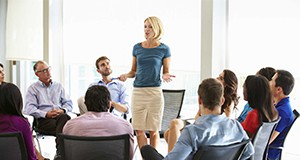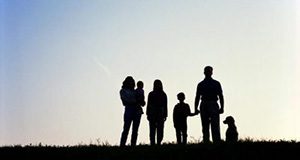This 3-page document is one in the Healthy Gulf, Healthy Communities series, which focuses on research studying the physiological, psychological, and sociological effects of the 2010 Deepwater Horizon oil spill in order to help communities recover and prepare for future potential disasters. Written by Angela B. Lindsay, Nadia Bahadori, and Samantha Goldenberg and published by the UF/IFAS Department of Agricultural Education and Communication, December 2018.
http://edis.ifas.ufl.edu/wc320
Tag: Disaster Preparedness and Recovery
Engaging and Empowering Community Resource Organizations (CROs) Before, During, and After Disasters
This 3-page document is one in the Healthy Gulf, Healthy Communities series, which focuses on research studying the physiological, psychological, and sociological effects of the 2010 Deepwater Horizon oil spill in order to help communities recover and prepare for future potential disasters. Written by Angela B. Lindsey and Samantha Goldenberg and published by the UF/IFAS Department of Agricultural Education and Communication, December 2018.
http://edis.ifas.ufl.edu/wc319
Consejos para pleanear contra desastres para gente mayor
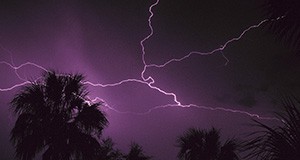 FY1462 is the Spanish language version of FY620, Disaster Planning Tips for Older Adults. This 4-page publication offers an abundance of information pertaining to water storage and use, food, first aid, important papers, electronics, medical needs, stress reduction, and evacuation which can help older adults plan for natural disasters and other emergencies. Written by Carolyn Wilken, Linda B. Bobroff, and Emily Minton, and published by the Department of Family, Youth and Community Sciences, May 2003.
FY1462 is the Spanish language version of FY620, Disaster Planning Tips for Older Adults. This 4-page publication offers an abundance of information pertaining to water storage and use, food, first aid, important papers, electronics, medical needs, stress reduction, and evacuation which can help older adults plan for natural disasters and other emergencies. Written by Carolyn Wilken, Linda B. Bobroff, and Emily Minton, and published by the Department of Family, Youth and Community Sciences, May 2003.
http://edis.ifas.ufl.edu/fy1462
Hurricane Preparation: Evacuating Your Home
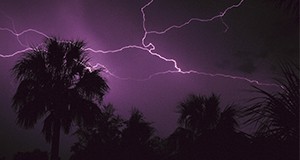
Every year Floridians are faced with the possibility of hurricanes. Hurricanes have had devastating effects on many communities in Florida, and every year the possibility exists that communities will be hit by hurricanes during the summer and fall months. During the months of potential hurricanes, it is important to plan for the worst and hope that it never happens. For example, you and your family may be asked to leave your home due to some emergency conditions in your community. Have a plan for a possible evacuation and be prepared to evacuate. This 3-page fact sheet lists fifteen things to keep in mind. Written by Elizabeth Bolton and Muthusami Kumaran and published by the Department of Family, Youth and Community Sciences, May 2015.
http://edis.ifas.ufl.edu/fy747
Dealing with a Florida Winter Weather Event
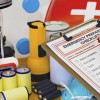 People in Florida might not consider planning and preparing for winter weather events because of its normally mild temperatures. However, some northern Florida regions experience temperatures below freezing and occasional snow and ice storms during the winter months. These storm events can be dangerous and even deadly. These simple safety reminders can help you and your family be better prepared for Florida’s winter weather events. This 3-page fact sheet was written by Randall Cantrell, Judy Corbus, and Michael Spranger, and published by the UF Department of Family Youth and Community Sciences, April 2014.
People in Florida might not consider planning and preparing for winter weather events because of its normally mild temperatures. However, some northern Florida regions experience temperatures below freezing and occasional snow and ice storms during the winter months. These storm events can be dangerous and even deadly. These simple safety reminders can help you and your family be better prepared for Florida’s winter weather events. This 3-page fact sheet was written by Randall Cantrell, Judy Corbus, and Michael Spranger, and published by the UF Department of Family Youth and Community Sciences, April 2014.
http://edis.ifas.ufl.edu/fy1407
Living with Diabetes: Putting Together an Emergency Preparedness Plan (FCS80007/FY1300)
 People with diabetes need to prepare in advance by having a plan and supply kit ready in the event of an emergency. This 3-page fact sheet describes key concerns that should be considered when developing an emergency plan and putting together a supply kit, and lists the things that should be included in the supply kit. Written by Nancy J. Gal and published by the UF Department of Family Youth and Community Sciences, April 2012.
People with diabetes need to prepare in advance by having a plan and supply kit ready in the event of an emergency. This 3-page fact sheet describes key concerns that should be considered when developing an emergency plan and putting together a supply kit, and lists the things that should be included in the supply kit. Written by Nancy J. Gal and published by the UF Department of Family Youth and Community Sciences, April 2012.
http://edis.ifas.ufl.edu/fy1300
Be Prepared: Tips for Assembling a Low-Cost Disaster Kit (FCS9313/FY1284)
 Being prepared can increase your speed of recovery from severe events such as flooding, drought, tornado, hurricane, winter storms, or even being stranded because of a car problem. According to the Red Cross and FEMA three steps of preparation are: Get a kit. Make a plan. Be informed. While pre-assembled kits are available for purchase, assembling your own can cost less and ensures that the kit includes items that are appropriate to your family’s needs. Remember when planning to include all members of your family including pets. This 2-page fact sheet was written by Elizabeth D. Kiss and Michael S. Gutter, and published by the UF Department of Family Youth and Community Sciences, February 2012.
Being prepared can increase your speed of recovery from severe events such as flooding, drought, tornado, hurricane, winter storms, or even being stranded because of a car problem. According to the Red Cross and FEMA three steps of preparation are: Get a kit. Make a plan. Be informed. While pre-assembled kits are available for purchase, assembling your own can cost less and ensures that the kit includes items that are appropriate to your family’s needs. Remember when planning to include all members of your family including pets. This 2-page fact sheet was written by Elizabeth D. Kiss and Michael S. Gutter, and published by the UF Department of Family Youth and Community Sciences, February 2012.
http://edis.ifas.ufl.edu/fy1284
WC093 Risk and Crisis Communication: When Things Go Wrong
W093, a 7-page illustrated fact sheet by Ricky Telg, examines the practice of crisis and risk communication as part of an organization’s overall crisis plan. Includes references. Published by the UF Department of Agricultural Education and Communication, July 2010.
http://edis.ifas.ufl.edu/wc093
